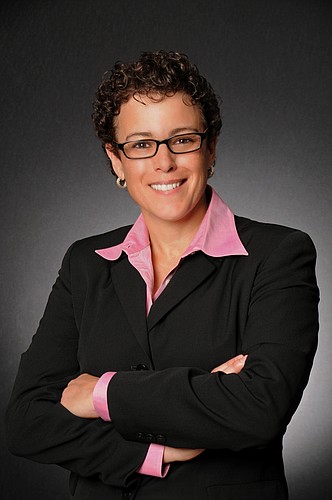- January 14, 2025
-
-
Loading

Loading

COVID-19 has prompted many executives to take a hard look at whether employees who have spent the past few months working from home need to ever come back into the office. Facebook and Twitter recently announced they will allow many employees to work from home permanently. And in this region, IT Authorities and Tervis are two companies that put their multimillion dollar office buildings on the market to move to a more remote workforce model.
As the founder of a Tampa Bay-based company that’s been fully remote since its inception in 2006, I know virtual businesses can work. The model brings a number of benefits, including reduced overhead, a wider talent pool not restricted by geography and greater job satisfaction for employees who enjoy the flexibility of working from home. However, not everyone is cut out for full-time remote work.
For leaders considering a fully remote workforce, here are five tips for finding the best talent for your organization:
1. Seek certain personality traits, skillsets
In our experience, traits common to top talent who work from home include self-motivation, time-management skills and an entrepreneurial spirit. Most importantly, a candidate needs to have passion for the work they would be hired to do, as excitement breeds motivation. Also, opt for candidates who most closely fit well-defined job descriptions in terms of expertise and experience. Keep in mind that, compared to a traditional office environment, a virtual business model doesn’t allow as many opportunities to develop lesser-experienced employees.
2. Choose phone interviews over in-person or video interviews
If you’re hiring remote employees based on particular skillsets, expertise and personality traits, there’s no reason to interview candidates in person or via videoconference. Actually, opting for telephone interviews removes the potential bias of “appearance discrimination,” which occurs when someone is treated differently based on how they look. Telephone interviews allow executives to evaluate candidates based on their experience and performance history rather than how they physically present themselves. Of course, forgoing an in-person interview, or even a video-based interview, requires a mindset change in doing it differently than the old way of interviewing a candidate.
3. Ask behavioral interview questions
It’s easy for candidates to answer hypothetical questions, such as, “Do you think you’re self-motivated enough to work from home?” But how do you know the truth, even if they say yes? Asking behavioral questions will help you understand how candidates feel about their work. Ask open-ended questions where the right answer isn’t obvious, and pay close attention to information the candidate volunteers. Look for candidates whose answers relate to the content of the work itself, shared with enthusiasm, rather than responses focused on in-person interactions with people in an office environment. Also, have a few people with the company interview the candidate for a more collective, confident assessment.
4. Leverage professional relationships
Almost all of our hires have come from referrals, whether from former co-workers, current employees, clients or industry peers. Building relationships and maintaining them long-term is an excellent way to create a pipeline of potential recruits who come highly recommended. This is particularly important when you need extra assurance a candidate would be a good fit for a work-from-home environment. Because of this, look more to the value of LinkedIn for staying connected rather than employment websites offering long lists of unfamiliar candidates.
5. Maintain a strong company presence online
Remember: While you’re researching a candidate from a distance, they’re also researching you. When prospective employees Google your company, make sure their search turns up plenty of valuable results. A website that clearly explains who you are, social media platforms that speak to your culture and positive news coverage that showcases thought leadership can all make your company more appealing to top talent. Better yet, your reputation precedes you, and the candidate is already familiar with and attracted to your company before the first interview.
Deb Mabari is the CEO and founder of CODY, a Tampa Bay-based health care technology and consulting company serving health plans nationwide.